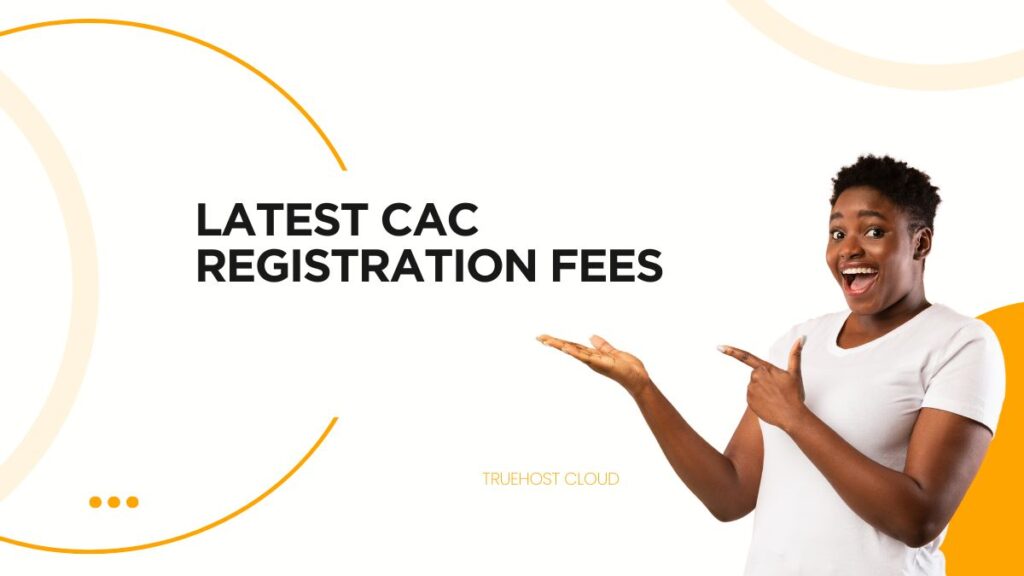Want to start a business in Nigeria?
Great!
But hold up. Before you dive headfirst into your entrepreneurial dreams, there’s one crucial thing you need to sort out: CAC registration.
Think of the Corporate Affairs Commission (CAC) as the gatekeeper of legitimate businesses in Nigeria. They’re the ones who make it official, giving you the legal green light to operate.
And yes, that comes with a price tag.
This article breaks down everything you need to know about CAC registration fees in Nigeria.
No fluff, just straight-to-the-point facts to help you navigate the process.
Why CAC Registration Matters
First things first, why even bother with CAC registration?
Here’s the deal:
- It’s the law. Operating a business without CAC registration is illegal in Nigeria. You’re risking penalties, fines, and even closure.
- Credibility. CAC registration gives your business legitimacy. It shows customers, investors, and partners that you’re serious and trustworthy.
- Access to opportunities. Many banks and financial institutions require CAC registration before granting loans or other financial services.
Bottom line: CAC registration is non-negotiable for any serious entrepreneur in Nigeria.
Breaking Down the Costs: CAC Registration Fees
Now, let’s get to the nitty-gritty: how much will this set you back?
CAC registration fees vary depending on the type of business you’re registering. Here’s a simplified breakdown:
- Business Name Registration: This is the most common type for sole proprietorships and partnerships. Expect to pay around ₦10,000 – ₦25,000.
- Company Registration: For private or public limited liability companies, the fees increase based on your share capital. It can range from ₦10,000 to well over ₦50,000.
- Incorporated Trustees: If you’re registering a non-profit organization, expect fees around ₦30,000 – ₦110,000.
But wait, there’s more!
These are just the basic registration fees. You might also encounter additional charges for:
- Name reservation: Securing your desired business name.
- Filing annual returns: An annual obligation to keep your registration active.
- Other services: Changes to your business information, obtaining certified copies, etc.
Table Showing CAC Registration Fees in Nigeria
| Cost Component | Cost (₦) | Description |
|---|---|---|
| Reservation of Name | ₦500 | To reserve a unique name for the company. |
| Registration of Private Company (≤ ₦1 million share capital) | ₦10,000 | For private companies with share capital of 1 million or less. |
| Registration of Private Company (> ₦1 million up to ₦500 million) | ₦5,000 per ₦1 million | For private companies with share capital between 1 and 500 million. |
| Registration of Private Company (> ₦500 million share capital) | ₦7,500 per ₦1 million | For private companies with share capital exceeding 500 million. |
| Registration of Public Company (≤ ₦1 million share capital) | ₦20,000 | For public companies with share capital of 1 million or less. |
| Registration of Public Company (> ₦1 million up to ₦500 million) | ₦10,000 per ₦1 million | For public companies with share capital between 1 and 500 million. |
| Registration of Public Company (> ₦500 million share capital) | ₦15,000 per ₦1 million | For public companies with share capital exceeding 500 million. |
| Registration of Company without Share Capital | ₦20,000 | For companies that do not have a share capital. |
| Filing Notice of Exemption for Foreign Companies | ₦30,000 | Required for foreign companies seeking exemption from registration. |
| Reinstatement/Relisting of Company Name | ₦25,000 | For reinstating or relisting a company’s name. |
| Registration of Charges for Private Company | ₦10,000 per ₦1 million | For registering charges against a private company. |
| Registration of Charges for Public Company | ₦20,000 per ₦1 million | For registering charges against a public company. |
| Filing Annual Return for Small Company | ₦2,000 | Annual return fee for small companies. |
| Filing Annual Return for Private Company | ₦3,000 | Annual return fee for private companies (non-small). |
| Filing Annual Return for Public Company | ₦5,000 | Annual return fee for public companies. |
These fees are subject to change and may vary based on specific circumstances or additional requirements during the registration process. It is advisable to consult the CAC or relevant legal professionals for the most current information and guidance on company registration in Nigeria.
Pro Tip: Factor in these potential extra costs when budgeting for your business registration.
Read also: CAC Name Reservation Pending Approval: What It Means and What to Do Next
How To Get Through the CAC Registration Process
The CAC offers both online and offline registration options.
Here’s a quick rundown of the online process:
- Name Reservation: Head to the CAC website and check if your desired business name is available. If it is, reserve it.
- Registration: Complete the online registration form with your business details.
- Payment: Pay the required fees online.
- Upload Documents: Upload the necessary supporting documents.
- Submission: Submit your application and wait for approval.
Sounds simple enough, right?
But here’s the catch:
- The CAC website can be tricky to navigate.
- The process can be time-consuming.
- Mistakes can lead to delays and frustration.
Don’t worry, I’ve got you covered.
Read also: Corporate Affairs Commission Post-Incorporation Guide
Tools and Resources to Simplify CAC Registration
Here are some resources to help you streamline the process:
- CAC website: The official source for information and online registration.
- CAC accredited agents: These professionals can handle the registration process for you, for a fee.
- Online legal services: Several platforms offer online CAC registration assistance.
My recommendation?
If you’re not comfortable navigating the process yourself, consider using an accredited agent or an online legal service. It might cost a bit extra, but it can save you time, headaches, and potential mistakes.
Don’t Let Fees Hold You Back
I get it.
Starting a business is expensive.
But don’t let CAC registration fees discourage you.
Think of it as an investment in your business’s future.
With proper planning and the right resources, you can navigate the process smoothly and get your business legally up and running.
Read also:


